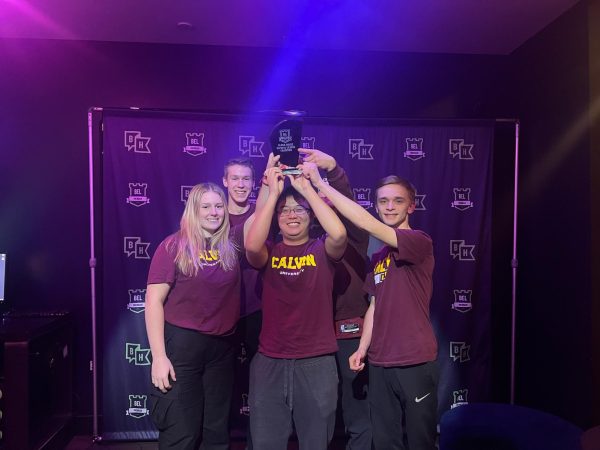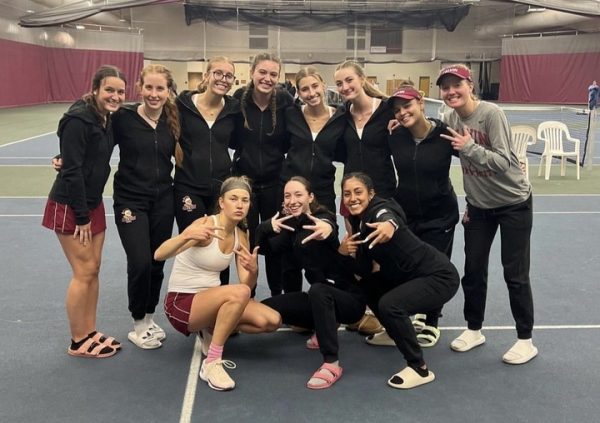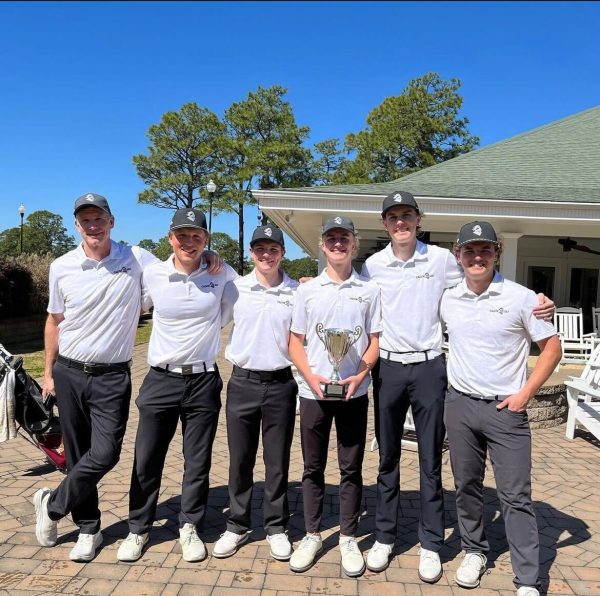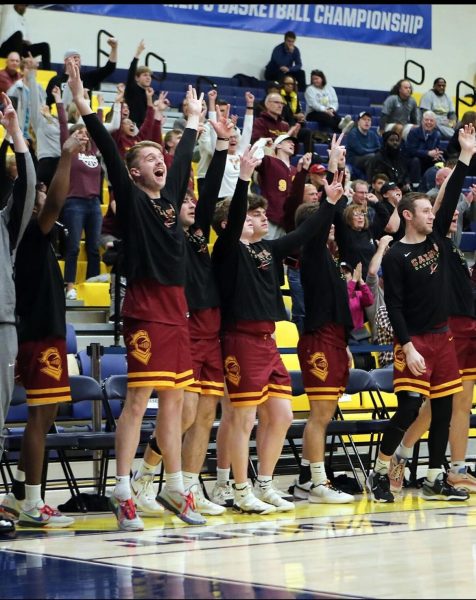Q&A with women’s volleyball coach Warners
The women’s volleyball team is coming off a DIII National Championship in 2016. Despite losing a couple players, they are favorites to repeat they are championship run this year. The team is ranked first in the nation and are undefeated in all eight matches so far this season. Chimes sat down with head coach Amber Warners, who is entering her 16th year with the program.
Chimes: What do you think about this year’s team?
Warners: I think we have a really nice nucleus of returners who have a lot of experience on the court in high pressure situations. . . We have a lot of talent within all 25 players on our team. It’s been really exciting to be able to see that new personality come out. . . We’re just really striving to work hard to keep getting better every day and do the best that we can so that we can be the best team at the end.
Chimes: You mentioned that the team takes on a personality. If you could describe the team in three words, what would they be?
Warners: I would say “very even keeled.” There are not lot of outliers as far as – we just have everybody pretty mature, bought in, selfless – wanting to do the best for the team. “Even keeled” would be one. “Bought in” would be another one. They work hard, they are doing whatever we are asking them to do. So that would be the second one. Third one, I would say “competitive.” Whether it’s competitions in practice or competing to get a certain position, spot on the court — nobody can take a day off because everybody is really fighting hard to get a spot on the floor. At the same time I want to say collectively they’re very competitive people on the court.
Chimes: I know you’ve played a couple matches already, but what are your general goals for this season?
Warners: Well, I could give you several of them; but I would say overall I think our goal is to take every day and do everything we possibly can to make our experience a really memorable time together and to be able to look back and say we gave everything we had. So for today it’s just about coming into practice, having fun together, but also improving and working as hard as we can to become a better team at the end of the day.
Chimes: What would you say the team morale is right now?
Warners: I think they are getting along very well, gelling in a very nice way. They are still getting to know one another. We brought in eleven new people. Those relationships take time. I think we are in a really good, stable position.
Chimes: What are some challenges you face as a coach, in general?
Warners: I have a few that come to mind. One of them is getting a group of twenty-five players to buy into what the team needs. We have players who aren’t getting much playing time who could be getting playing time at other schools. It’s about making the experience one where everyone is brought into the same mission – that’s a challenge. I think another challenge is the sports psychology and the mentality of a group after winning a national championship is a challenge, as far as pressure . . . But this is a brand new group, a brand new season, and we need to do things differently based on what that group needs . . . It’s a balance of helping them not feel too much pressure.
Chimes: Do you think that this year’s current team will be able to win the national championships again?
Warners: I think we certainly are capable of doing that . . . There are certain things that are out of your control. So we are trying to control all the things that are in our control. That is, having fun and not taking yourself too seriously, being invested in the team as well as other teams on campus and trying to become the best team we can be. We will let the result take care of itself if we take care of all the other stuff.
Chimes: What is your coaching philosophy?
Warners: I think there are two things. One, I want to win. As a Christian coach, sometimes I feel like people think that that’s not allowed to be said. But whenever you’re competing, the idea is to strive together in a way where you want the end result to be at the top. That’s the first part. The second part of my philosophy is way more important than the first one–even though the first one is important–and that is, I want my players to grow in every area of their life and to walk away from our program and say, ‘Wow, I learned so much more about myself and about life that is going to carry me in the years to come. It was one of the best experiences of my life up to this date.’
Chimes: Outside of your life as a volleyball coach, what are your hobbies and/or interests?
Warners: I’m a wife and mother. That takes a lot of my time. I love working with other teams, consulting with other teams, sports psychology and mentality. I love to read. I love to do art whether it is making jewelry or painting. I love to interior decorate and cook.
Chimes: You’ve talked about how you care about these players as people. Do you normally keep in touch with the players after they have graduated?
Warners: I do. I can tell you pretty much what almost every player in the last fifteen years is doing and where they live. So some people have asked me, ‘How do you measure success?’ and my answer was, ‘It’s about how many wedding invitations you get or how many volleyball players are at the wedding.’ A player that comes to play has seven years of players around them – three years of players older than them and three years of players younger than them. You don’t invite people you don’t care about to your wedding. RIght? You only invite people you care about. There can be fifteen to twenty volleyball players at a wedding, and another five to eight that can’t make it because they are living across the country. That’s a pretty great measure of success. I care about players investing in one another, as people, as women, as fellow Christians.
Chimes: Who’s your favorite athlete?
Warners: I would probably pick Brett Favre. While he made a lot of mistakes in life, the courage and grit he showed on the field, the performance he showed when his dad died, to the sheer competitive spirit he had when he played.
This interview has been condensed and edited.







